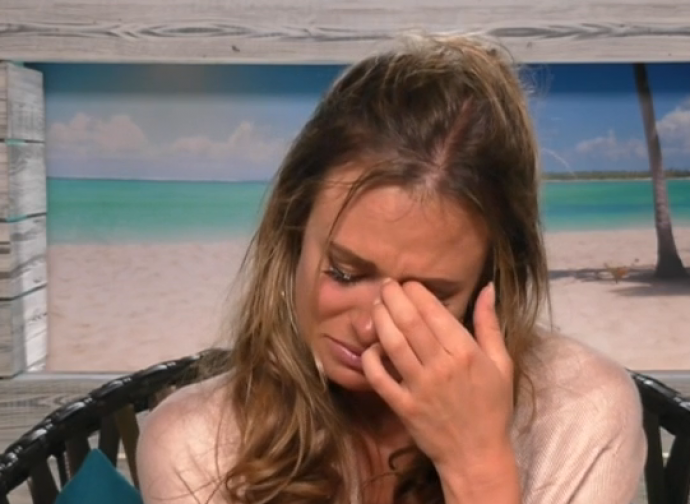Reality show suicides and the sham of life on social media
There are now four suicides connected to the British reality show “Love Island”: its former host, Caroline Flack, was found dead, and before her two other contestants and a boyfriend had also killed themselves. Used to being in front of the cameras 24 hours a day, when they leave they repeat it on social media. The same thing happens in Italy, and is spreading as if happiness depended on the love you receive from the world, but results in despair.

There are now four suicides linked to the British reality show “Love Island”. Last Saturday its former host Caroline Flack was found lifeless in her London apartment. The 40-year-old, once a media darling, had recently been massacred by the media and online for hitting her 27-year-old boyfriend over the head. It was he who, still bleeding, called the police, even though he ended up trying to defend the woman. According to friends, Flack was terrified of the upcoming public trial and, after months of antidepressant treatments, she took her own life.
Before her, Sophie Gradon, 32-year-old star of “Love Island” and Miss Great Britain 2009, had also committed suicide. During the reality show, she had a fling with another woman, acquiring, of course, even more notoriety. Leaving the villa where the contestants are kept for months with the aim of mating and eliminating each other, she had suffered serious mental health problems, also due to the criticism of a life on constant display on social media. Gradon was later engaged to Aaron Armstrong, a 25-year-old businessman, with whom she spent her time posting photos of their days: on a boat, at restaurants, at parties and even in bed, obviously always looking radiant and smiling. Aaron committed suicide 20 days after Sophie’s death.
After their death in 2018, in March last year another former competitor of “Love Island”, 26-year-old Mike Thalassitis, nick-named ‘Muggy Mike’, also took his own life. Commenting on the episode, Mario Falcone, former contestant of “The Only Way is Essex”, another English reality show based on the love affairs of its protagonists, commented, “On social media there were a lot of things being said that were a lot stronger than 'Muggy Mike'”. Then, explaining that leaving a reality show can be difficult even though you have to show that you are happy all the time, he accused the production of the reality show: “They’ve got to look at themselves and how they treat their stars”. In fact, The New York Times and other major newspapers had also pointed out that in order to better entertain the audience, the contestants were provoked so as to react with floods of tears, attacks of anger, or theatrics, only to then find themselves insulted by viewers also after the show was over.
The producers of the reality show had defended themselves by explaining that their psychological support also extends to the months after leaving the villa. As if to say, shamelessly, that in order to offer popularity to someone you can make them run the risk of losing their mind. And that therefore fame has a price. It has led, as reported in the US newspaper, several psychologists to leave the reality world and denounce it.
What is disturbing is that just a few hours before their suicide these stars had posted photos in which they appeared radiantly happy. But, above all, these celebrities, who live on Instagram, are the models of our society, which is why they would do anything to participate in a reality show and become famous, as if happiness depended on fame and wealth. But once you reach these goals, what you get is despair.
But how come? The new host of “Love Island”, Laura Whitmore, has accused online trolls of causing Caroline Flack's death, lashing out at the “press demonising and destroying success” and the “tabloids seeking cheap sales”. But Whitmore can't help but know that when you decide to spend your life in the spotlight it's impossible for your life to remain the same as before (whether you're a celebrity or a social media addict). This has always been true for those in show-business, all the more so now that the situation is evolving. Because if in the past even celebrities had a private life, today there are those who, celebrities or not, almost totally relinquish it. From reality shows they switch to incessant presence on social media, which they think they control. Actually, if you use social media as an extension of your existence, you are obliged to continuously answer for your conduct in front of followers that either hate you or, if they love you, they actually love the image you have built for yourself: a mask worn 24 hours a day capable of making even those who wear it forget their true identity, so you spend your time in the exhausting pursuit of living up to that platonic idea of self.
This means that once that image is destroyed and the audience, on whose judgement you have staked your existence, begins to criticise, you begin to experience such anguish that you see no other way out than to withdraw from the stage. Unfortunately, as the stage is now indistinguishable from your own life, this means taking your own life. Because if the reason for living was the love you mistakenly thought you were receiving from the audience (if it is love of a fake, limitless image it can’t actually be love), once it's gone, nothing can make sense any longer. Those who choose to submit themselves to the blackmail of Big Brother should at least be aware of this.
